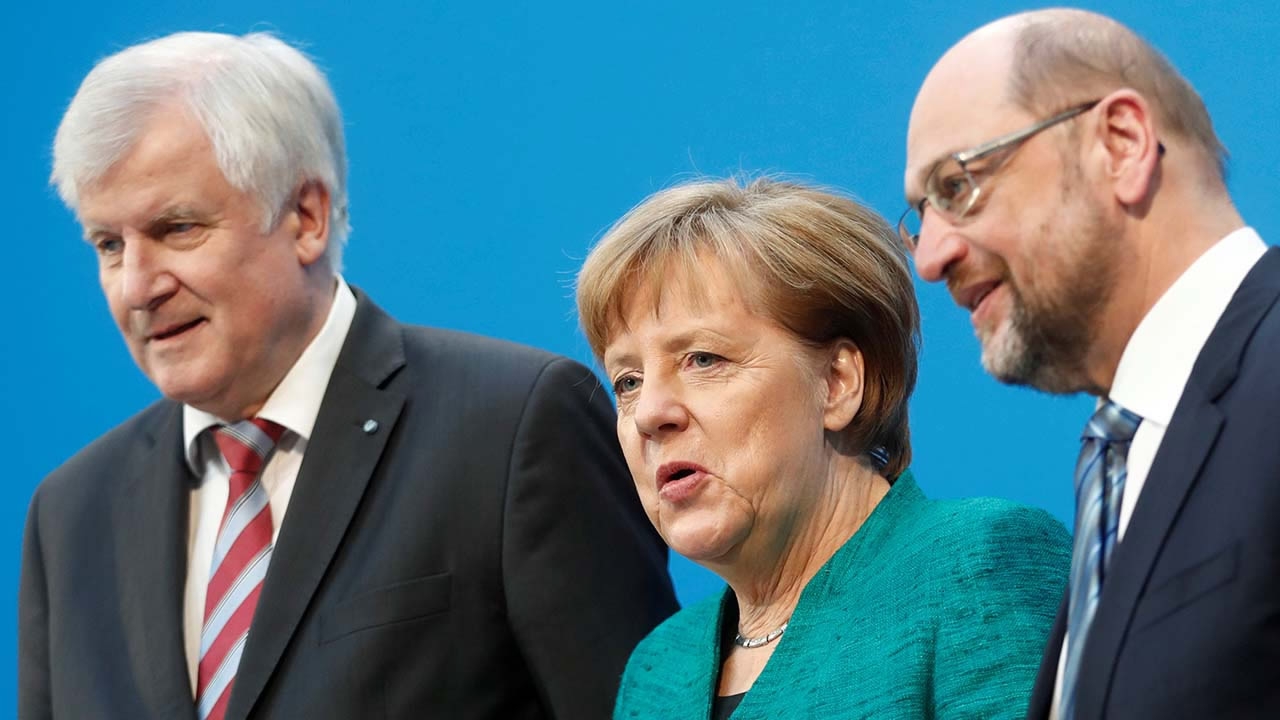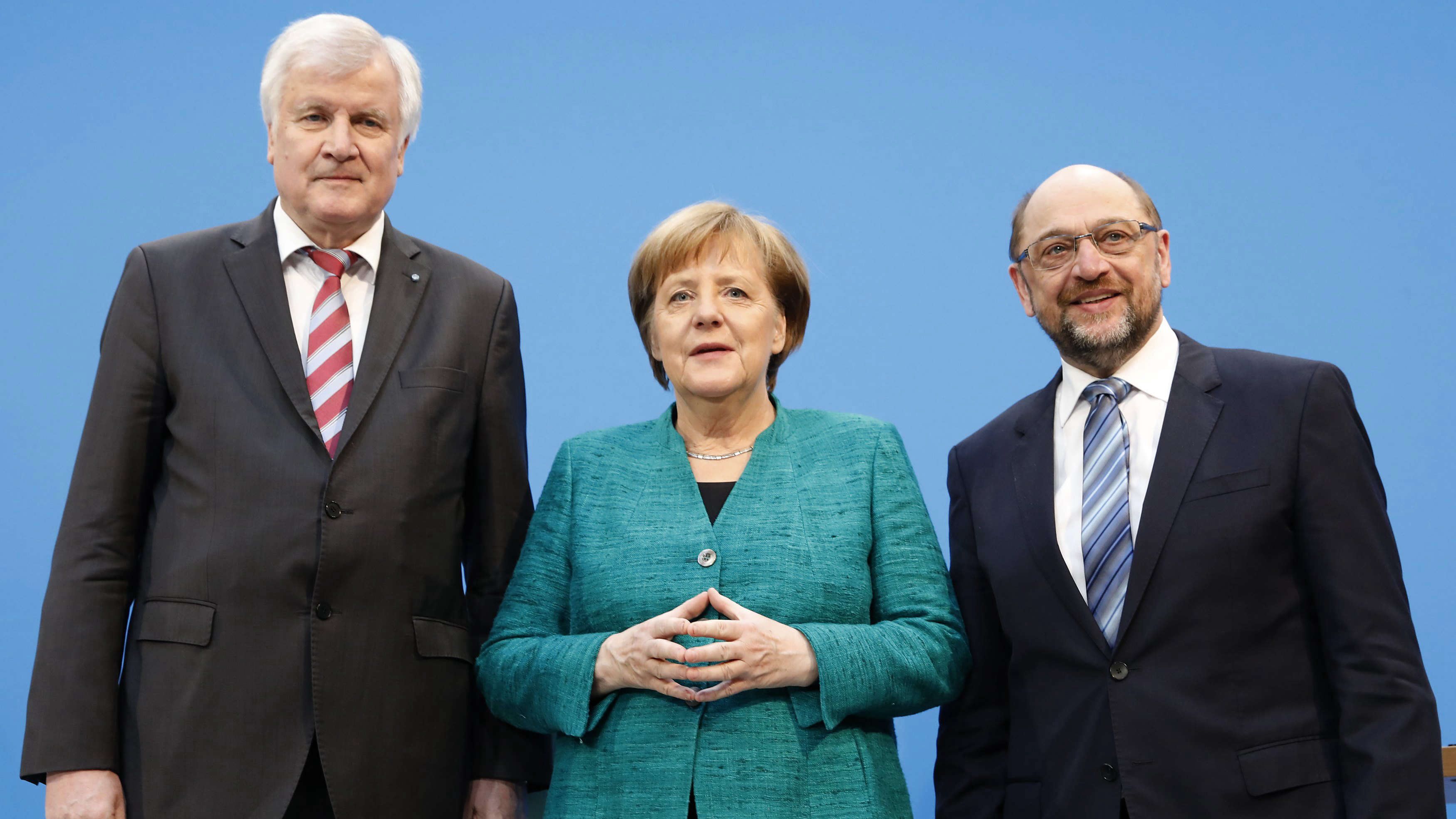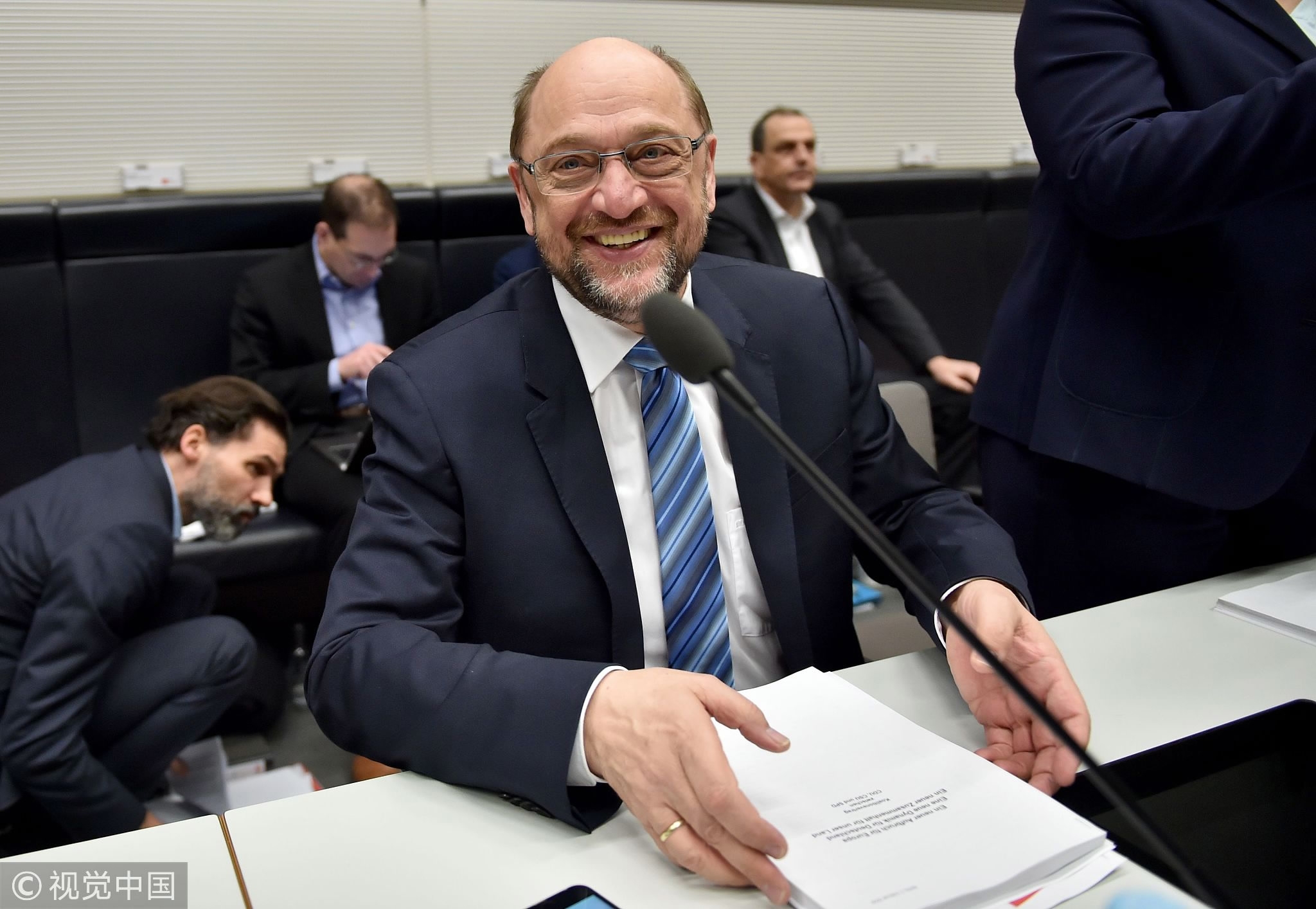
Politics
17:08, 07-Feb-2018
German parties reach agreement on 'grand coalition'
By Ira Spitzer

More than four months after the federal elections, Germany’s Christian Democratic Union (CDU), the Christian Social Union (CSU) and the German Social Democrats (SPD) have agreed to form a coalition government.
That so-called ‘Grand Coalition’-the same government which led the country since 2013-would end the long period of instability in Europe’s largest economy.
German chancellor Angela Merkel would continue to lead the country under the new agreement. But her conservatives were forced to make concessions to the center-left SPD who initially rejected rejoining the Merkel-led government.
Merkel, who has been chancellor since 2005, sounded positive after the talks.

"You made two justified demands to us. First, form a government at last and make it a stable government, and second, during your talks please think about the actual needs and interests of the people,” Merkel said. "I am convinced that the coalition deal that we have reached can be all of this."
The SPD would take control of the country’s powerful finance ministry, a major concession from the conservatives. That could mean more momentum for European reform efforts and a less of a focus on austerity. However, elsewhere on the international stage, Berlin’s positions aren’t likely to change all that dramatically.
“It’s the same government that we’ve had for the past four years," said Ulrike Franke, a policy fellow at the European Council on Foreign Relations. "So I don’t expect any major course changes when it comes to the relationship with Russia or China or the United States.”

Head of German Social Democratic party (SPD) Martin Schulz arrives for a parliamentary group meeting, Febr. 7, 2018, in Berlin, after the conservatives and the social democrats sealed a deal on a new coalition. /VCG Photo
Head of German Social Democratic party (SPD) Martin Schulz arrives for a parliamentary group meeting, Febr. 7, 2018, in Berlin, after the conservatives and the social democrats sealed a deal on a new coalition. /VCG Photo
But in an unusual procedure, Social Democratic rank-and-file party members-about 460,000 of them-still have a chance to approve or reject the deal. This was a condition for the party to join the talks in the first place. The voting window opens Feb. 20, and the SPD said they will announce the results on March 4.
Their voters are concerned about social welfare issues like housing and health care. That vote will likely be a referendum on how much influence they think the SPD will have this time around.
“Most of the things that the last government achieved were basically seen as something that Angela Merkel did rather than something between CDU and SPD," said Franke.
If the SPD voters approve the coalition, leaders are hoping to form a new government by the beginning of April.
7368km

SITEMAP
Copyright © 2018 CGTN. Beijing ICP prepared NO.16065310-3
Copyright © 2018 CGTN. Beijing ICP prepared NO.16065310-3